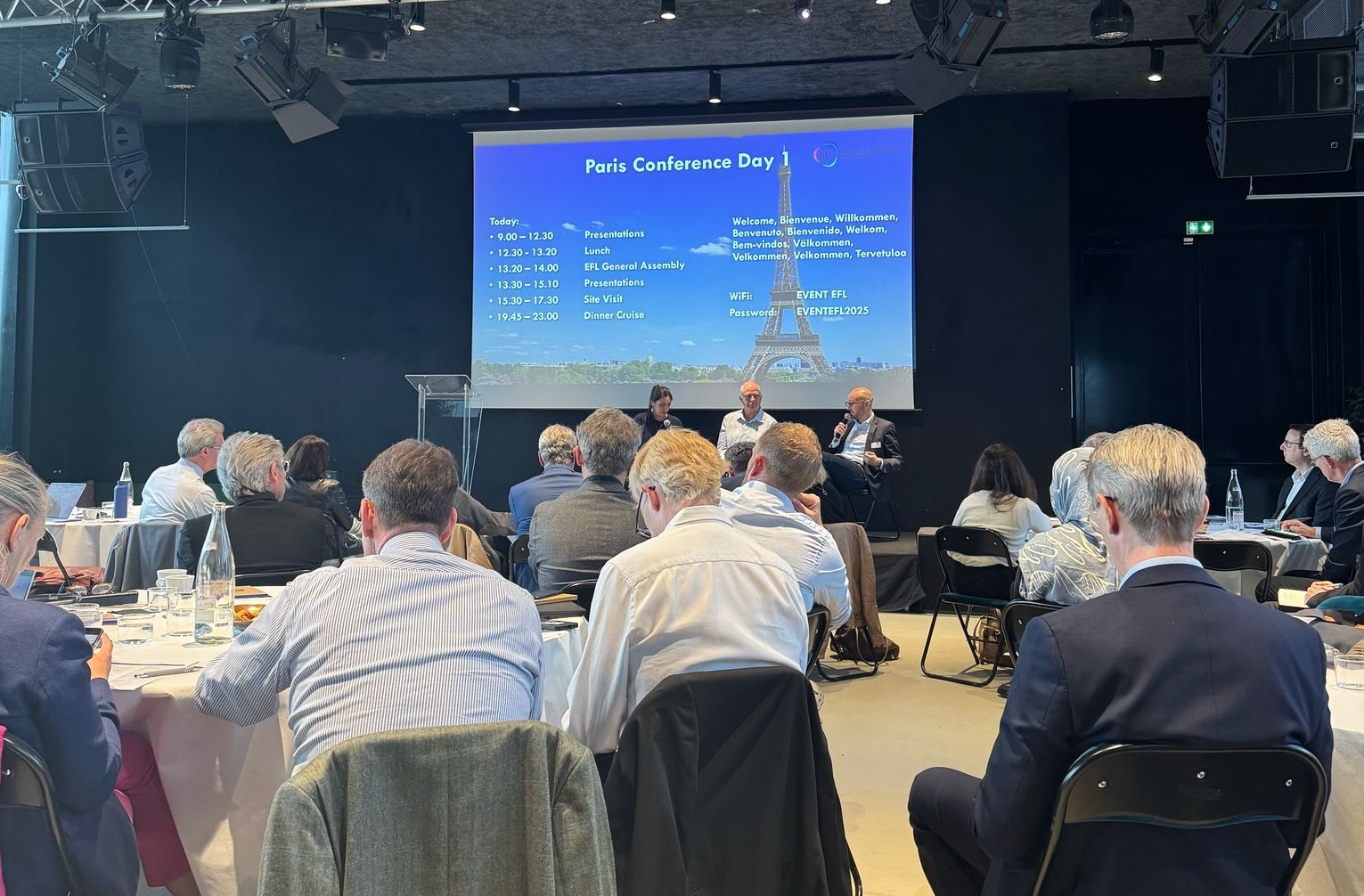On the 21st to the 23rd May Convene attended the EFL Spring Conference 2025, which focused on the theme “Climate Resilient and Climate Adaptive Urban Development and Housing”. We’d like to thank the EFL and all those in attendance for making it such an insightful and enlightening conference.
This conference looked at leveraging policy, partnerships, and finance to build Europe’s resilient and affordable housing future. It offered the opportunity to connect with experts, share insights, and shape the future of urban development in a changing climate.
In addition to sessions, talks and discussions, the event also featured an exclusive presentation by Stefan Moser, head of the European Commission’s Task Force for the new Affordable Housing Plan. This initiative aims to “tackle the current housing crisis by pioneering innovative solutions for affordable housing”.
The first day of the conference, Thursday 22nd May, began with a talk on the need for climate resilience construction, with a Q&A. This was followed by a session on global economic challenges and green financing that also ended in an insightful Q&A. During these session it was revealed that the goal posts have been shifted from 2025 to 2050 an the likelihood is all new and existing buildings will have to be adapted to a 2.5°C shift that housing suppliers and constructors should be taking into account as of now! Their advice for governance professionals was to work in partnerships and collaborate to form plans not only with contructors and residents but to knowledge share amongst housing associations for the best results.
After a short break there was another talk on addressing the physical climate risk at the building level, which looked at a framework for climate adaptive buildings. This talked focused on the importance of data and how governance professionals need to keep track of their risks, which he argued the CSRD forces people to do.
Then there was an international forum on climate resilience and adaptive housing, and this was followed by a talk on the visionary road to a regenerative future. The main takeaway from these sessions was that you need to not only be creating ecologically sound buildings that are adaptable to the climate but also socially conscious buildings that are adaptable to communities. In Europe they are refocusing on creating communities within Housing Associations, especially in urban areas as this will be increasingly important as the climate shifts and we become more reliant on our neighbours.
After lunch there was an EFL General Assembly, a speech from the new Chairman Dr. Michael Brey, and then some topic group updates on finance and investments and construction and architecture.
This was followed by a final session on building climate-resilience housing through circular economy, which looked at reducing carbon and increasing value.
The second day of the conference began with a welcome and an overview on the conclusions of day one. Then there were some topic group updates on age friendly living, digitisation and AI in Housing, and social domain. European Housing Associations are prioritising a more digital approach to the sector, with focus on what new technology and AI can bring to Housing. Convene’s own Arturo Dell was praised for his talk on AI developments at the last meeting during this session.
As the leading Board portal for Housing Association in the UK, Convene is all about how digitisation can improve governance practices and processes. Associations and their Boards need their meetings to run smoothly, and they need systems and software that facilitates this.
Convene is also committed to supporting Housing Associations as they adopt AI technologies while maintaining the highest standards of security and compliance. Our approach to AI prioritises private deployments, strict data lifespan management, GDPR compliance, and AI-specific non-disclosure agreements. Our AI functionality will be hosted through Amazon Bedrock, ensuring that data remains securely within a private cloud environment and is never used for external model training. We are also fast at work to ensure we will be compliant with the EU AI safety Act.
After a coffee break there was the session on the European Affordable Housing Plan by Stefan Moser, head of the EU Taskforce Housing. This was followed by an enlightening Q&A. The European continent is the “lab” for ESG as we have a diverse climate and a diverse set of needs, and the UK can follow this suit. We need to be pioneers in this sector.
Then there was a talk on EIB’s perspective on financing sustainable and affordable housing, which also was followed by a Q&A. There was then a series of workshops which looked at climate resilience and preparing for future challenges, and Artificial Intelligence. There was also plenary feedback from these workshops.
The final talk of the day was about unlocking sustainable finance for social and affordable housing across Europe. This was given by one of our partners, Dr Ad Hereijgers, who nicely rounded up the sessions by discussing the role of ESG in securing funding and the importance of reporting accurately to do so. RITTERWALD’s Sustainable Housing Label and Convene ESG have helped Housing Associations in the UK and across Europe access funding.
We’d like to thank all those in attendance, as well as the EFL and the host Polylogis, for engaging in these important conversations surrounding climate resilience in the Housing sector.
You can learn more about how Convene can help your Housing Association, and join our growing Housing community, here.

